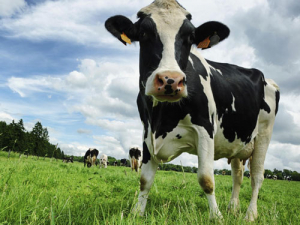DairyNZ Calls for Changes to Government’s Proposed Resource Management Act Reform
DairyNZ says the Government’s proposed Resource Management Act reform needs further work to ensure it delivers on its intent.
 How DairyNZ and BLNZ will split 32% (about $278m) of the M. bovis eradication programme is still being discussed.
How DairyNZ and BLNZ will split 32% (about $278m) of the M. bovis eradication programme is still being discussed.
Beef + Lamb NZ and DairyNZ are working through the cost-sharing process for the industry share of eradicating Mycoplasma bovis, says BLNZ general manager policy and advocacy Dave Harrison.
“To come up with a fair approach we have been making use of an independent panel,” he told Dairy News in a joint statement from both industry-good bodies.
“We have had initial advice and are providing feedback. Once the process has finalised, a recommendation will go to our respective boards and be shared with farmers.
“Given this is a sensitive and important process, we can’t comment on the specifics until it has been agreed and approved by our respective boards.”
The cost of the eradication programme is reckoned at $886 million over 10 years. MPI says $16m of that is loss of production and will be borne by farmers, while $870m is the cost of the response, including compensation.
The Government will pay 68% of that and the two levying bodies, DairyNZ and BLNZ, will pay 32% (about $278m).
But exactly how it will be split between them remains under discussion. Earlier this year dairy industry sources said an 80/20 split between dairy farmers and beef farmers would be fair. However, beef farmers were pushing for a 90/10 split, pointing out that dairy farms are at the centre of the outbreak.
Budou are being picked now in Bridge Pā, the most intense and exciting time of the year for the Greencollar team – and the harvest of the finest eating grapes is weeks earlier than expected.
The Real Estate Institute of New Zealand (REINZ) has released its latest rural property report, providing a detailed view of New Zealand’s rural real estate market for the 12 months ending December 2025.
Rural retailer Farmlands has released it's latest round of half-year results, labeling it as evidence that its five-year strategy is delivering on financial performance and better value for members.
OPINION: "We are back to where we were a year ago," according to a leading banking analyst in the UK, referring to US president Donald Trump's latest imposition of a global 10% tariff on all exports into the US.
DairyNZ says the Government’s proposed Resource Management Act reform needs further work to ensure it delivers on its intent.
Overseas Trade Minister Todd McClay says he's working constructively with the Labour Party in the hope they will endorse the free trade agreement (FTA) with India when the agreement comes before Parliament for ratification.
OPINION: Expect the Indian free trade deal to feature strongly in the election campaign.
OPINION: One of the world's largest ice cream makers, Nestlé, is going cold on the viability of making the dessert.